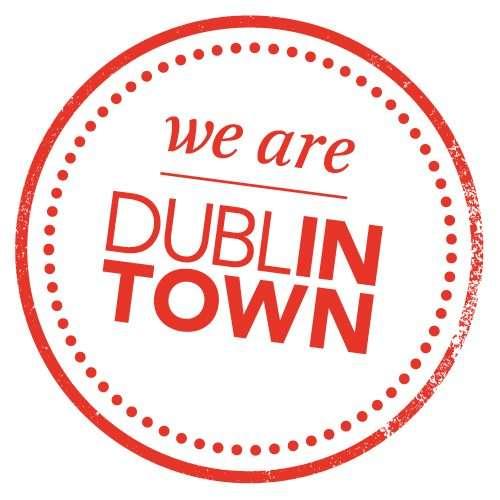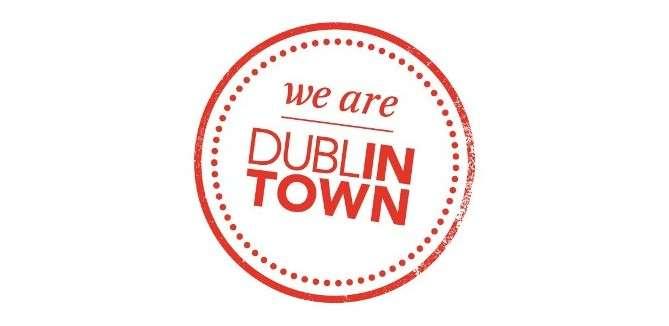A note to Members on antisocial behaviour

- Fri 01 August, 2014
Dear Member,
We know that antisocial behaviour is a cause for concern to many businesses. Outlined below are the challenges faced and the steps being taken by Dublin City BID on your behalf to address these issues.
Overview
As BID members will be aware, BID management has had ongoing engagement with city centre stakeholders over the problems of anti-social behaviour and, in particular, drug use in the BID area. This note is provided to update members on work that is ongoing in this area. It discusses a number of issues, and identifies core actions in each. It is structured as follows:
– The perennial problem – feeling safe in Dublin
– Addressing the roots, not the branches
– Core activities
– Next steps
The Perennial Problem – Feeling Safe in Dublin
Dublin is not unsafe – our crime rates are not out of kilter with those in other cities of comparable size. However, Dublin suffers from a reputation that it is unsafe. This is a perennial issue that has vexed the city for some considerable time. It dominates every survey of public opinion and there is regular and abundant media comment about anti-social behaviour and safety fears in the city.
The ‘Your City, Your Voice’ research survey in 2012 revealed that 74% of people feel safe in Dublin city by day, while only 35% feel safe by night. The comparison figures for Liverpool are 99% feeling safe by day and 78% feeling safe by night. Where people feel unsafe and have other options they will simply choose to spend their time and money elsewhere. For businesses based in Dublin city centre this is a major issue. To address the issue, we need to know why people feel unsafe in Dublin.
Why people feel unsafe in Dublin
Despite good crime statistics Dubliners still feel unsafe because of:
- Visible drug related activity
- Congregation of people engaged in the drug scene around the city;
- Exceptionally high levels of begging which on occasion can be aggressive
- Prevalence of homeless people sleeping rough in the city.
While significant work has been undertaken in this regard, there is clearly more that needs to be achieved.
Addressing the roots, not the branches
The causes of anti-social behaviour are many and complex. They won’t be solved through glib sound bites, or simplistic, one dimensional solutions, but rather require concerted effort from all stakeholders.
BID has undertaken significant work on this issue.
We have:
Studied interventions adopted in cities such as New York and Liverpool, which have dealt with similar issues to those faced by Dublin. We have seen that synchronising criminal justice, policing, local Government, health services, homeless services and other stakeholders including the business community yields the best results.
Worked with the statutory and voluntary stakeholders in the area to produce the ‘Better City For All’ report, a copy of which is available here. This report recommended a number of actions which could be taken to improve the situation in relation to antisocial behaviour in the BID area. For the first time there was an acknowledgement that there had been a clustering of services and that this clustering had unintended consequences which needed to be addressed. It further noted that while the provision of services is critical in solving many of the underlying issues that give rise to anti-social behaviour, there were steps that we could take to ensure that the impacts on wider community could be minimised.
Core activities
A: Assertive Outreach
In 2013 an innovative process began whereby the Gardaí, drug service providers and homeless service providers actively seek out people who are entrenched in street life, to assess their needs and support them to access suitable services. This builds on the work of an arrest referral programme which was co-funded by BID, and in which people who were arrested were offered assessment and referrals to a range of treatment services.
There is considerable scope for developing this process, and work is underway to implement an assertive outreach service covering the city centre later in 2014.
We saw a similar approach adopted in New York, where individuals at risk were identified put into homes and given support for drug and alcohol addictions. Dublin needs a similarly proactive approach to be adopted.
B: Local Provision of Services
Currently, clinics in Dublin city provide services for drug users from both inside and outside the city centre area and indeed from other parts of the country. This is an artefact of historical service development, and it is accepted that it is better for the individuals concerned and society at large where they are treated within their own local communities. The Better City For All report recommended that people be treated by local GPs and that needle and syringe exchange programmes (NSP) and methadone services should be provided through local pharmacies. Naturally, this is a complex process with many interested parties, but positive steps have been taken:
– Increased numbers of doctors are now being trained to work with people suffering with opiate addiction in their local areas
– Pharmacy NSP began 2011, by the end of 2013 there were 95 pharmacies providing NSP services outside Dublin with a target of 300 by 2017. There are more Pharmacy NSP providers coming on stream. Local drug services are signposted to people attending Pharmacy NSP for further support.
– BID provided funding towards a van for the Ana Liffey Drug Project (ALDP) to support its outreach programme, which provides support to people in their homes. With HSE support, ALDP now also operates programmes in the Midlands and Limerick meaning that people who previously may have had to travel for services like NSP no longer have to do so.
– Service providers in the city centre area often closed at the same time meaning that service users found themselves on the street with nowhere to go, particularly at lunchtime. Opening hours have been better co-ordinated through the Better City For All group.
The provision of services in Dublin city centre
– We successfully lobbied for the closure of the homeless service at 160 Capel Street. We also successfully objected to the opening of the Bridge Project prisoner rehabilitation service which was planned for Wolfe Tone Street. While we still wish to see the closure of Cedar House on Marlborough Street, it has been widely acknowledged that the facility is better managed than previous similar services with a resultant reduction in needle finds and local business complaints.
C: Environmental Design
Design requirements such as inset fire escapes have the unintended consequence of creating spaces where anti-social behaviour can take place. These requirements were queried and the issues have been clarified by the City Council’s planning department. As such, a number of businesses have been able to alleviate the difficulties that they had been experiencing. BID has been successful in securing additional lighting in problematic areas and has gated lanes where anti-social behaviour was centred. We are working to find alternative uses for such lanes and to gate additional lanes in the interim.
D: An ongoing focus on Policing
While it is naïve to believe that all of the city’s problems can be sorted through the criminal justice system, the Gardaí have an obvious and important role to play. BID continues to work very closely with the Gardaí at all levels, including the followingReporting unlawful activity and acting as witnesses in court cases.
Supporting Operations Stilts, Spire and Pier
Operation Spire has been successful in targeting drug related activity on the north side of the city and has improved perceptions of the O’Connell Street area. However, there has been a certain amount of displacement to other parts of the city; the Gardaí on the south side of the river are addressing the displacement to their sector through Operation Pier. BID has met the Gardaí with delegations from the Westmoreland Street and Grafton Street areas to discuss the difficulties being encountered.
We welcome an intensive ongoing Garda presence in the retail and tourist core of the city, and are committed to working with the Gardaí to ensure that this is the case. We accept that such an approach will be resource intensive. We believe that Gardaí should be drafted from Dublin suburbs and from around the country to police the city where footfall is highest. The BID area has a daily footfall of 328,000. This is greater than the populations of Cork City, Limerick City, Waterford City and Galway City combined. It is likely that Garda numbers in those 4 cities considerably outnumbers the Garda allocation in Dublin’s Store Street and Pearse Street stations. Dublin does not have the Garda presence that a modern city should have and the failure to provide Dublin city with sufficient Gardaí could have economic consequences for the entire country.
E: Promoting appropriate Legislative Change
BID has also been active in lobbying for legislative change which we believe will have a positive impact on antisocial behaviour and public drug use in the city centre.
For example:
– BID successfully lobbied for the introduction of Criminal Justice (Public Order) Act 2011, which made it an offence to beg in certain circumstances. However, a 2013 decision of the High Court means that there are now increased barriers to being able to obtain a conviction under the Act. BID is committed to engaging with legislators on this issue.
In 2012 we drafted legislation to deal with the illegal sale of prescription drugs. This draft was taken and amended by the Department of Health. The resultant amended draft is currently progressing through the legislative process. It is currently delayed in Europe where it is being considered on competition grounds. However, we are assured that it will be passed into law soon.
F: Use of ASBO’s
We advocated the use of ASBO’s to ban difficult individuals from the city centre. These are used extensively in the UK to deal with unacceptable behaviours and persons given an ASBO are effectively excluded from the city for a period of time. 8 such ASBO’s have been granted by the courts in Dublin. We see considerable scope for extending their use and believe that it should be made easier to obtain them. There are 200 to 250 people whose behaviour is persistently causing difficulties in the city of which roughly 50 people account for most incidents. This must be seen in the context of a city that has an average daily footfall of 328,000. So 0.06% of the population in the city are responsible for it having a poor reputation and being the subject of much negative media comment. 99.94% of the population go about their business without interfering with others but because of the behaviour of a tiny minority they feel they can not enjoy their city as they should and feel somewhat threatened. This hardly seems fair.
G. Know where your money is going
In 2013 we had a campaign along with Tiglin addiction centre to encourage people to give money to charity rather than people begging on the street. This campaign is still ongoing and we would encourage businesses to continue to work with us on it.
Next Steps
We are committed to improving the perception of Dublin and making it a safe, inviting place to do business. There is a lot that remains to be done in this space, but a much better and coherent vision for what can be achieved than was previously the case. BID is committed to working hard on behalf of our members to achieve measurable goals. Our next steps in each of our core areas are:
A:Begging
Simply speaking the Criminal Justice (Public Order) (Amendment) Act 2011 which was introduced to address widespread begging across the country is not working.
We maintain a log of begging in the city’s retail core and it would appear from this that the incidents of begging are higher now than before the passing of the legislation in 2011. Indeed, our staff reports suggest that a member of the public is likely to be approached on average once every 6 minutes and asked for cash on the city’s south side streets during the evening. We have noted the clear targeting of tourists and people seated outside pubs and restaurants. We have further witnessed a level of intimidation and persistence in the activities of beggars in the city.
There is anecdotal evidence of people begging on Dublin streets because it is seen as an acceptable way of getting money and there is clearly organised begging conducted by both Irish and people of Eastern European background.
While S.5 of the act prohibits the act of controlling or directing the actions of another person for the purposes of begging, nobody has been convicted under this section of the act and we understand that it is unlikely that a conviction will ever be secured using this legislation given the level of proof required. We understand that a detailed file was prepared by the Gardaí for the DPP in relation to this but that DPP did not proceed to take the case to court.
An early draft of the Criminal Justice (Public Order) Bill contained provision for making persistent begging an offence. Unfortunately, this aspect of the proposed legislation was not included in the Act as passed. We would see this as a flaw in the legislation. At present, a person complies with a Garda request to move on and then either settles in another spot in the immediate vicinity or circles the block and returns to begging when the Garda presence has gone. This effectively undermines the purpose of the legislation. We would see a requirement to make persistent begging an offence. Thus, if an individual is found by the Gardaí to be repeatedly begging that an offence would be deemed to have occurred. We would see that the exclusion of that person from the immediate area through an Anti-Social Behaviour Order as an appropriate response to such behaviour. This would help in addressing the practice of persistent commercial begging. The use of S.247 of the Children’s Act 2001 has been used successfully to address the use of children in organised begging and we believe a thoughtful response to persistent commercial begging could also prove beneficial.
Anti-social behaviour orders made easier
There are a significant differences between the UK and Irish legislation, in that in Ireland a case for an ASBO must be taken by a Superintendent while in the UK it can be taken by a member of the police force. We advocate the use of community courts so that ASBO cases can be heard more quickly and efficiently.
Allied to this we believe that it is appropriate for the judiciary to impose restrictions on movement within the city’s retail and tourist core as part of bail conditions for incidents where drug related activity and general anti-social behaviour is involved.
Richard Guiney
CEO



